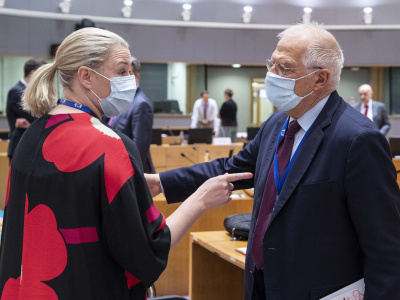
Saving Africa’s private sector jobs during the coronavirus pandemic
The authors of this paper published by EDFI, including ECDPM’s San Bilal, look at the impact of COVID-19 on Africa’s private sector and argue that development finance institutions are uniquely placed to provide financial support and lead the eventual recovery.
Summary
Because of the coronavirus pandemic, Africa’s private sector is facing a very large recession, the likes of which has not been seen for 25 years. This is putting more than 20 million jobs and many livelihoods at risk and pushing millions into poverty.
The authors of this paper argue that development finance institutions are uniquely placed to provide financial support and lead the eventual recovery.
European Development Finance Institutions (DFIs) and their shareholders must step up with additional resources and use their links with the domestic banking sector and their competencies to channel liquidity to Africa’s private sector. Also, European DFIs support millions of jobs in Africa, often highly productive ones that have strong interlinkages with the rest of the economy. These direct and indirect jobs must be protected in the recession as they will be crucial to Africa’s bounce-back.
For that, European DFIs need to immediately boost the liquidity support for investee firms, increase their risk tolerance, relax debt servicing requirements where necessary, provide scarce foreign exchange when needed, come up with innovative support mechanisms including credit guarantees to deliver countercyclical support, and set up a bounce-back better and recapitalisation vehicle to inject equity into otherwise viable firms hit by the crisis.
This will require new capital, increased risk tolerance, temporary suspension of minimum return requirements and new credit lines and guarantees from donors of between € 2-5 billion. This will allow European DFIs not only to protect the jobs they support but also to prevent the loss of jobs in otherwise viable firms.




